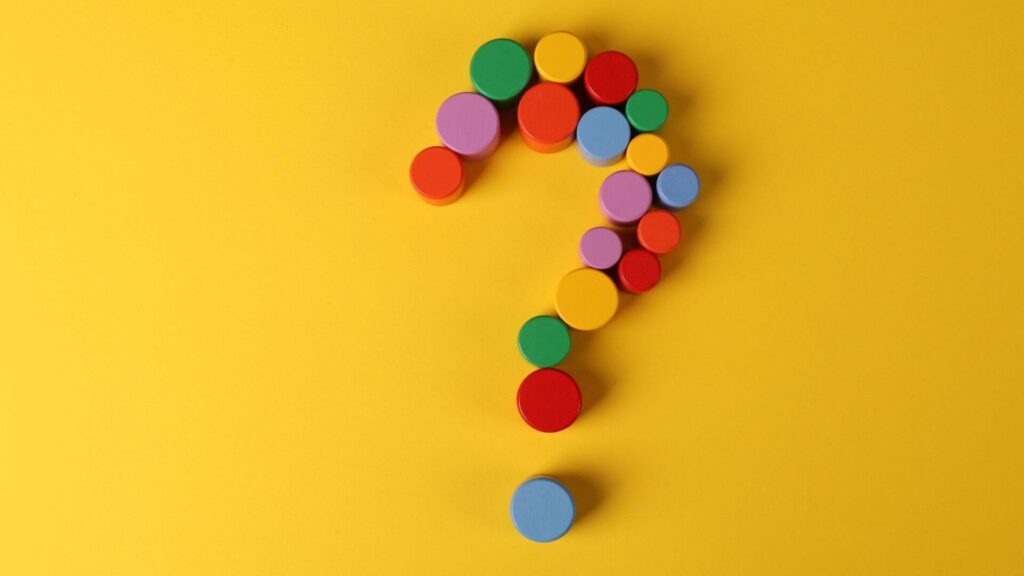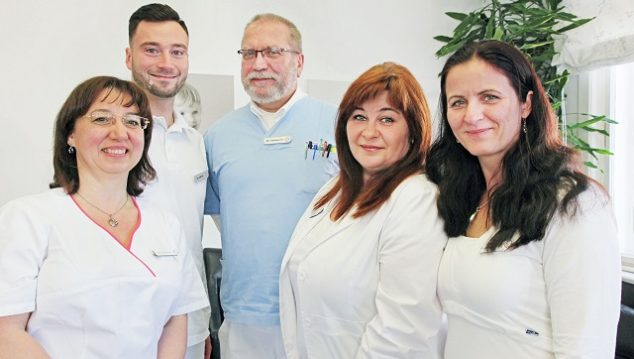Table of Contents
- 1 Why does IVF fail sometimes?
- 2 Failed attempts – physical and mental health
- 3 IVF failures and further steps
- 4 What should I do after failed IVF cycle?
- 5 Are you more fertile after failed IVF?
- 6 How long should you wait after a failed IVF cycle?
- 7 Is 2nd cycle of IVF more successful?
- 8 Why does IVF fail with good embryos?
- 9 How many times should you do IVF before giving up?
- 10 How do you know if IVF has failed?
- 11 Why did my first IVF cycle fail?
- 12 What happens to your body after a failed IVF?
- 13 What are the signs of failed IVF in the two-week wait?
- 14 How long should you wait after a failed IVF cycle?
- 15 Is natural pregnancy possible after failed IVF?
As recently as 2019 figures produced by ESHRE (European Society of Human Reproduction and Embryology) indicate that the average success rate for each IVF procedure was 27.1%. This figure changes dramatically when you drill down to the patient’s age with younger patients achieving far greater success than older women patients. It is inevitable, therefore, that many patients who undergo IVF procedures will be disappointed at some point in their journey. At these difficult touchpoints, it is important for patients to know their options after failed IVF.
In this article, we will discuss the various options which are available at different times after failed IVF cycles.
Why does IVF fail sometimes?
Human reproduction is not as straightforward as it seems. There is a myriad of individual components which have to be at their optimum to facilitate life. A successful IVF cycle is reliant on healthy, viable eggs and sperm being accommodated within a receptive, embryo welcoming endometrium. Then, there is the whole matter of genetic and general physical health which also needs to be problem- free to create the best possible chance of pregnancy.
From a woman’s perspective, age is vastly important. As we grow older the number and quality of our eggs diminish which will have a negative effect on our ability to get pregnant. The health of a woman’s uterine cavity is all-important too – the so-called ‘engine room’ of a pregnancy needs to free of fibroids, polyps, NK (natural killer) cells, or any other negative toxins in order to maximise the efficacy of the IVF cycle.
Men are a very real part of the equation too and can contribute to the failure of IVF. Sperm counts need to be of sufficient number and appearance (morphology) as well as mobile (motility) to be effective. Contributing factors also include the man’s general health and lifestyle (including exposure to toxins such as alcohol and nicotine).
Finally, to complicate matters even more you have the ‘elephant in the room’ known as unexplained infertility. This occurs when the couple have been trying to conceive for at least two years and there are no discernible deficiencies in the woman’s egg quality and fertility health or in the man’s sperm. Some studies have suggested that unexplained infertility could potentially account for up to 28% of the fertility patient community.
So, as you can see, there are a number of variables which need to align to achieve a successful pregnancy via the IVF cycle.
What happens when these variables do not act in the way we want them to, and pregnancy is not achieved? Exactly what are our options after failed IVF?
Failed attempts – physical and mental health
Before we contemplate what post IVF options are after treatment failure, we should consider the emotional impact of a failed IVF cycle. As patients, we invest heavily in IVF, emotionally, financially and practically and when it fails we suffer disappointment, anger, frustration and sadness akin to bereavement.
In order to address these feelings, we need to understand why the IVF cycle failed. By understanding, we satisfy our curiosity, we alleviate feelings like self-blame, and, fully informed, we can plan for a better outcome next time.
During the period immediately after an IVF failure take time to assess your personal situation. If necessary, take time to grieve, seek the professional help of a specialist fertility counsellor or coach but most importantly look after your physical and mental health. Readjust your mindset, take time out before contemplating another IVF cycle if you need to, and make sure you share your feelings with those around you. If this is not possible, consider joining an appropriate support group and when YOU are ready consult your treatment provider. Look at the reasons for failure, consider the options and plan for future procedures if and when you are ready.
IVF failures and further steps
Once you are in a position to consider the next steps after a failed IVF cycle you should consult with a fertility specialist. There might be many lifestyle and medical interventions that could be used to improve the chances of a pregnancy next time around – these will depend on your particular circumstance and the opinion of your doctor. In the remainder of this article, we consider a few options after failed IVF.
One of the most common reasons why IVF fails is due to poor embryo quality caused by poor egg quality. Egg quality is the founding stone of a healthy pregnancy and as we know this diminishes as we get older. We can’t turn the clock back to revive our eggs, but we can intervene to cause further deterioration and modern science is now exploring new ways of rejuvenating poor-quality eggs.
Egg quality can be addressed by lifestyle changes including adopting diets that are rich in antioxidants which neutralise free radicals, taking on additional supplements such as Omega 3, B vitamins and Zinc. Exercise, stress and weight management, and avoiding stimulants like alcohol and nicotine can also promote healthier eggs.
Egg quality can also be addressed with the use of Dehydroepiandrosterone (DHEA) supplementation, a mild male hormone supplement which raises androgen levels in the ovaries which can lead to greater egg quality (low androgen levels are associated with diminished ovarian reserve).
If your treatment used your own eggs it might be worth considering using the eggs provided by a donor. Donor eggs from a licenced fertility clinic or egg bank will be viable and healthy, obtained by donors who are young and have undergone genetic and psychological screening to ensure they are fit to donate.
Another major reason for IVF failure is due to implantation problems, the failure of the embryo to implant to the wall of the uterus. Clinicians may use a number of procedures to assess why implantation does not happen successfully.
These include,
- uterine evaluation/hysterosalpingogram (HSG): an evaluation of the health of the uterus and fallopian tubes
- endometrial /receptivity assay (ERA): a biopsy to consider if there are any chemical or genetic markers hampering the receptive ability of the endometrium to implant.
Following investigative procedures, your fertility specialist may recommend a course of action which could include some of the following:
- Sperm DNA Fragmentation Test to assess the viability and integrity of the DNA in the sperm
- Preimplantation Genetic Testing for Aneuploidy (PGT-A) to identify the embryos that contain the appropriate chromosome composition offer the best chance of pregnancy
- Immunologic Tests: To identify immunologic abnormalities which could affect IVF outcomes.
These tests are not exhaustive by any means. The reasons behind the failure of IVF are complex and dependent on your individual circumstance. We have set aside, however, some frequently asked questions which are commonly asked after a failed IVF cycle.
What should I do after failed IVF cycle?
Firstly, you should take time to consider what has happened, take as much time as you need to talk to your partner if you have one, your family and friends if needed. Once you are emotionally ready speak to your treatment provider to ascertain if there was any specific reason why things didn’t go as planned; what additional tests are available to identify and suggest further treatment options and decide in your own time what you want to do in terms of another cycle.
Are you more fertile after failed IVF?
The jury is out on this question but there is some limited evidence to suggest that a number of women who have had unsuccessful IVF treatment go on to achieve a pregnancy naturally. In a 2019 study of 2,133 women who had received IVF treatment at an IVF unit in Aberdeen between 1998 and 2011 1,060 went on to have a live birth after successful IVF or ICSI treatment. From the 1.073 women whose treatment achieved no pregnancy or resulted in a pregnancy loss 17% went on to have live birth naturally.
How long should you wait after a failed IVF cycle?
Traditionally many clinics used to advise a three-month break between ovarian stimulation bur recent research suggests there is no appreciable difference in success rates if a subsequent ivf cycle is carried out one month or three months after a failed cycle. The short answer, therefore, is it really depends on your physical and mental health after failed treatment. You need to take as much time as you need to come to terms with the failed cycle, learn if anything could be done differently and only then, consider another attempt.
Is 2nd cycle of IVF more successful?
What are your options after 2 failed IVF cycles? It has been suggested that IVF success rate reduces after each successive cycle assuming all variables remain the same. However, each patient is different, and IVF success second time around will depend on a multitude of factors including, sperm and egg viability, any uterine, genetic or chromosomal issues, the cause of your infertility and your age.
Why does IVF fail with good embryos?
A viable and healthy embryo is only one part of the overall equation. Whatever the quality of an embryo it needs a suitable environment to implant – if you experience any endometrial issues such as those caused by fibroids, polyps, or adhesions these can cause a failure in treatment.
How many times should you do IVF before giving up?
One of the largest studies to determine the link between cumulative live birth rates and the number of IVF treatments was undertaken in the UK in 2015. 156,947 women who underwent ovarian stimulation cycles were followed to see how many cycles they undertook and the relative success of these. Whilst it was common practice to advise patients that 3 or 4 treatment cycles should be considered the maximum in terms of reaching an improved cumulative outcome the researchers found the cumulative prognosis rate after 6 cycles was 65.3%. This led the team to conclude that IVF treatment efficacy continued to improve beyond the third or fourth attempt.
How do you know if IVF has failed?
The only effective way to tell if IVF has failed is to take a pregnancy test.
Why did my first IVF cycle fail?
If your first IVF fails, your IVF specialist and their team will assess the process and attempt to evaluate what went wrong. The answer will depend on a number of variables which include whether there were any issues with egg and embryo quality and quantity, sperm quality and/or the ovarian response to the procedure. A consultation with your doctor will hopefully determine the cause of the failure and a suggested response in terms of supplementary treatment.
What happens to your body after a failed IVF?
Physically, you may experience some vaginal bleeding and your first period after fertility treatment might be slightly different from your ordinary experience in terms of duration and strength. Emotionally, you may well feel sadness, akin to bereavement, depression, frustration, anger or even a renewed determination to carry on. We all experience something different but you have to be prepared for a psychological response after a failed treatment.
What are the signs of failed IVF in the two-week wait?
During the two-week wait, your body is at the mercy of the two strongest sex hormones, oestrogen and progesterone. During this time, you might experience higher body temperature, cramps and sore breasts which might be a sign of IVF success, but it might not! Remember we are all different and it won’t be until you take a pregnancy test that you will know if the treatment was successful or not.
How long should you wait after a failed IVF cycle?
Following an unsuccessful IVF cycle, there isn’t a set period you must wait before trying again. Recent studies indicate that the success rates remain fairly consistent whether you pause for one month or three months before embarking on another cycle. It’s important to prioritize your physical and emotional recovery during this time. Consider any possible adjustments or enhancements that could be beneficial, and have a discussion with your fertility specialist to figure out the best timing for your next attempt.
Is natural pregnancy possible after failed IVF?
This will depend on your personal circumstances. Unless fertility treatment and investigations highlight a permanent and irreversible issue which means that you are physically not able to conceive and carry a baby (that means you might need to consider surrogacy as an option) a natural pregnancy is possible. This is especially the case if she had some form of corrective intervention during your failed cycle which improved your chances of conception and maintain a pregnancy.
You might be interested in reading:
- IVF journey – how to cope with IVF emotional rollercoaster
- What to consider when deciding between adoption and IVF
- How to prepare for IVF Embryo Transfer, before and afterwards
The article was updated in August 2024




